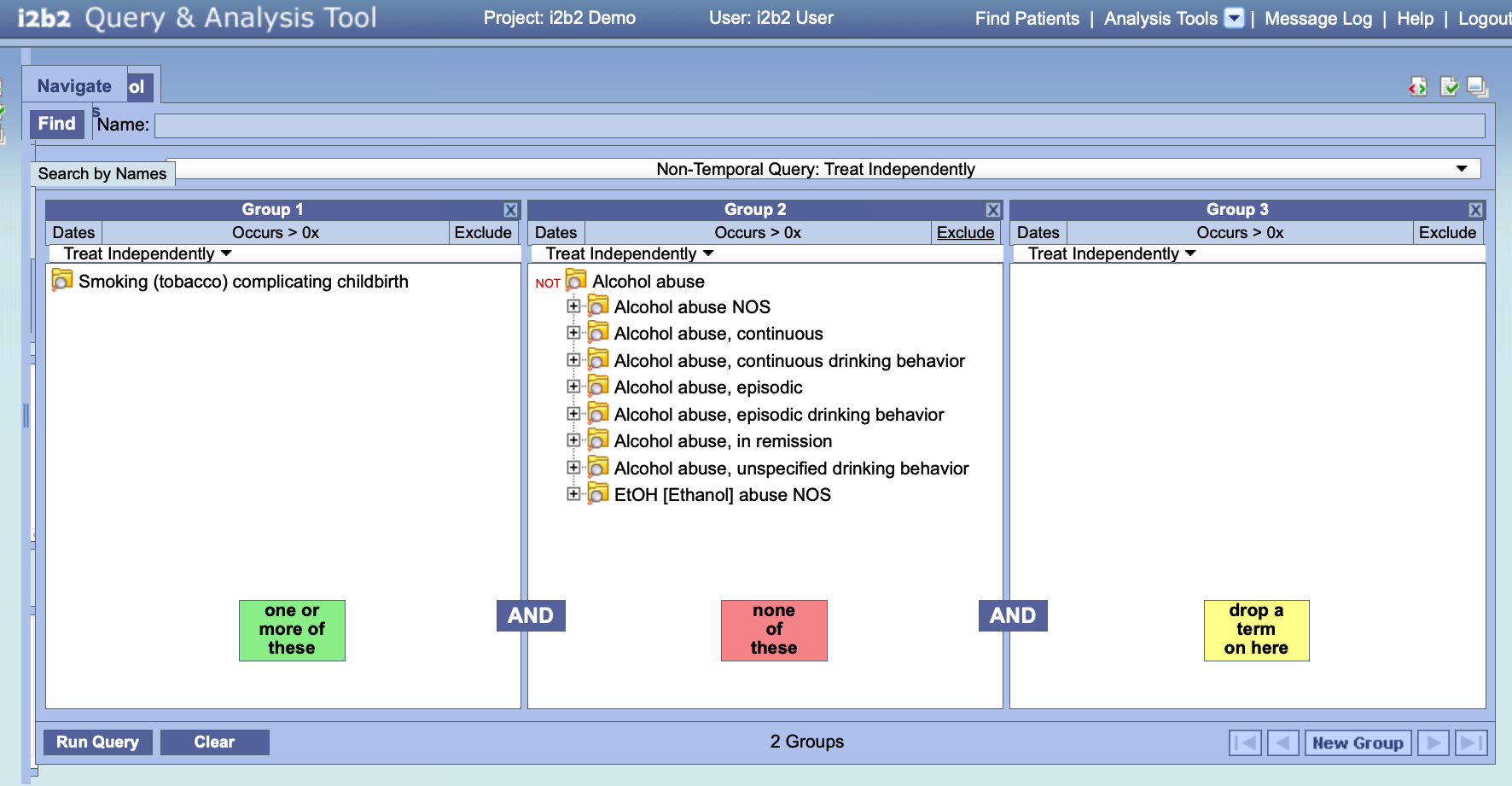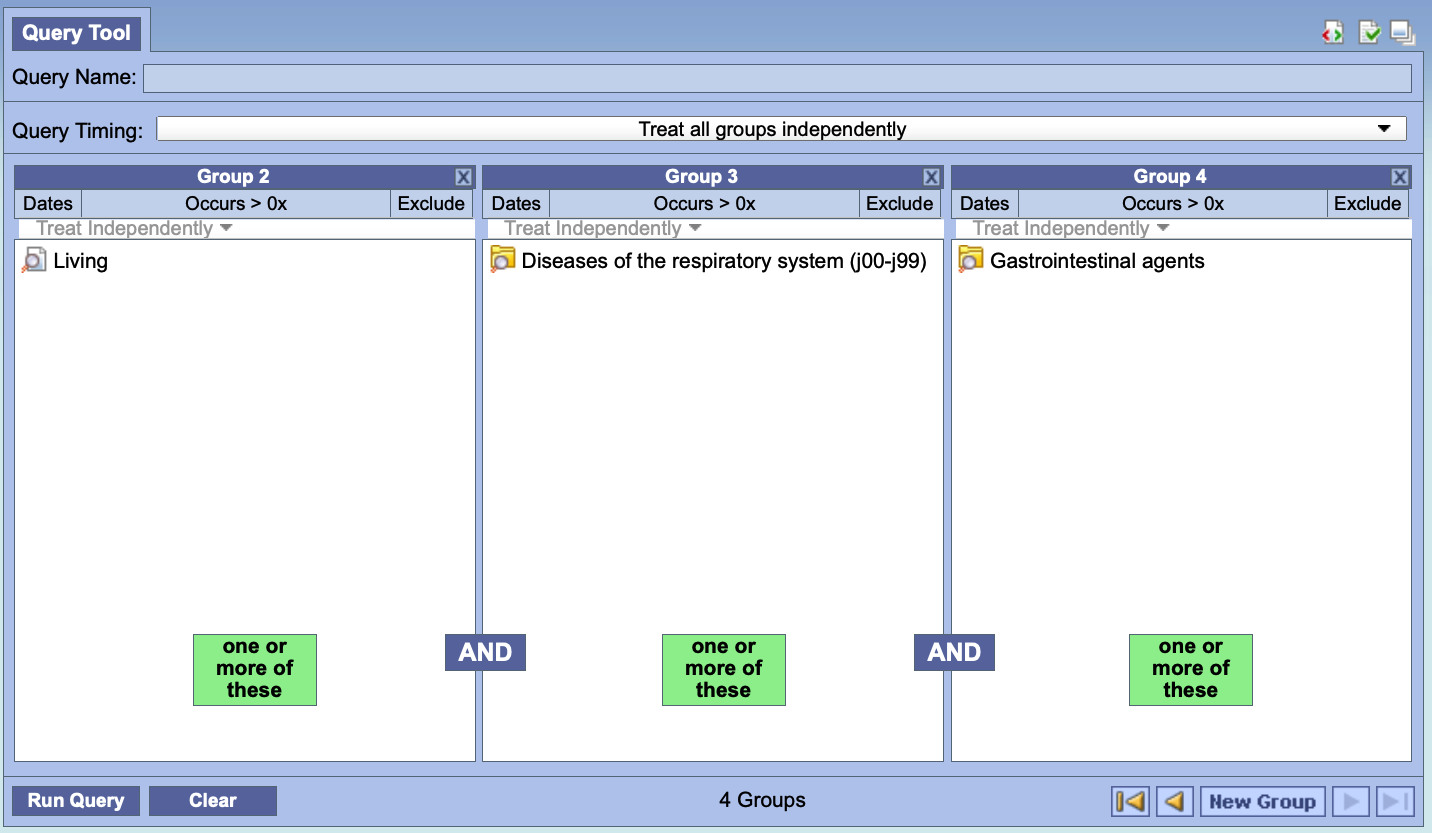| Quick Links |
In building up a Query, Folders or subfolders that contains concepts, patient information, etc. can be dragged into one of more of the Group panels in the Query View. Items in the same Group are evaluated as a Boolean OR operation. Different Groups are evaluated as a Boolean AND operations. The button at the top of each group also allows the exclusion of that group (a Boolean NOT). A Group can be included or excluded in the query (a Boolean NOT operator).

Initially there are 3 Group panels available. However, it is possible to add several "Groups" of Query items to the Query View (Query Tool) and several options are available. At the bottom of the Query panel on the right side is the New Group button.
In the figure below, a fourth group was added although only 3 Groups are visible at a time. There are navigation buttons on either side of the New Group button that allow you (from left to right) to move to the first Group, move to the previous Group, New Group, move to the next Group and move to the last Group.

Constraints are used to narrow down the search criteria to a particular time frame, number of occurrences or a specific value or range of values. In i2b2, there are several types of constraints that can be defined in the Query Tool view.
Constraint Type | Description |
Temporal | Constraint is defined on the query level and utilizes the patient encounters and / or instance number when determining eligibility. |
Panel Timing | Constraint is defined on the panel level and utilizes the patient encounters and / or instance number when determining eligibility. |
Date | Constraint uses a date range when determining eligibility. |
Occurrence | Constraint is by the number of occurrences an item is documented. |
Exclusion | Constraint will not include patients with the concepts listed in the panel. |
Value | Constraint is by the value associated to a concept or modifier. Not all items have values. |
NOTE: In the client, the value constraints are currently the only ones that directly correspond to a single concept. All others are defined on the query or panel level. |